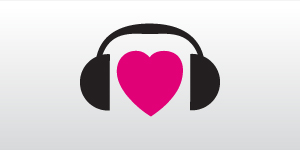Copyright ©2014 NPR. For personal, noncommercial use only. See Terms of Use. For other uses, prior permission required.
RENEE MONTAGNE, HOST:
The story of the first Thanksgiving is of a welcoming feast laid out by the Native Americans for some newcomers to the land. Every year, new immigrants to the U.S. are experiencing Thanksgiving for the first time. And that first holiday feast can be a baffling experience. NPR's Code Switch team invited people to share their stories.
MIKA WATANABE: Hi, my name is Mika Watanabe. I'm from Japan, and I'm living in Missoula, Montana. Growing up in Japan, I had never seen or touched or eaten a turkey. On Thanksgiving Day, the turkey was still in the freezer.
(MUSIC)
WATANABE: One friend warned me to thaw the turkey right away. And my instinct reaction was to put the turkey in my bathtub by running hot water.
(MUSIC)
WATANABE: This remedy did not go well, of course, and we ended up eating instant noodles that night.
(MUSIC)
WATANABE: It looked as if the big bird enjoyed taking a bath, not getting roasted.
(MUSIC)
LETICIA ORTIZ: My name is Leticia Ortiz, and I live in Dallas, Texas. My parents moved out here to Dallas in the late '70s from Mexico. My mom really wasn't sure how people roasted their turkeys to get it to look, like, golden and delicious. So her and her sisters kind of just got creative with it. And they decided that they would use, like, a steamer or a boiler on the stovetop instead of using the oven because they didn't know how to use the oven. And they came up with the idea of just putting a chili paste on it that you would make for, like, tamales or mole. And that's how they gave their turkey color because they didn't know how else to do it.
(MUSIC)
ORTIZ: It had a little bit of, like, a Mexican flair.
(MUSIC)
BRENDA SALINAS: My name is Brenda Salinas. My family moved from Mexico to the U.S. when I was 6 years old.
(MUSIC)
SALINAS: I remember we had, like, all different kinds of spaghetti and some Mexican food. And my mom pulls out of the oven these, like, turkey cutlets - not like a turkey, but turkey cutlets - that she had got at, like, Sam's Club. And I was crying. I was like this is not what the turkey looks like. It doesn't come precut. You have to have a full bird. And she was like, you didn't - you didn't tell me that.
(MUSIC)
ANNA MAJA: My name is Anna Maja (ph), and I currently live in Portland, Oregon. I moved from Australia, and this was my first Thanksgiving in the States. I was brand-new and married and had a new husband.
Yeah, it was a little disappointing. I didn't understand the holiday. I thought it would be a little bit more lively. And when everyone went around the table stating what they gave thanks for, I'd never experienced that before. And I came up with a blank, which is horrible, because I had a new husband. I had a new life. I had many things to be thankful for.
And I'm staring at everybody and didn't know what to say. And I think I said, I'm thankful it's my birthday.
(MUSIC)
MAJA: I'm actually really looking forward to Thanksgiving this year. And I've actually learned to slow down in anticipation for the holiday and take advantage of the fact that it's a day just to be together, and you don't have to fill it with things.
(MUSIC)
MONTAGNE: Four people telling stories of their first Thanksgiving in America.
Copyright © 2014 NPR. All rights reserved. No quotes from the materials contained herein may be used in any media without attribution to NPR. This transcript is provided for personal, noncommercial use only, pursuant to our Terms of Use. Any other use requires NPR's prior permission. Visit our permissions page for further information.
NPR transcripts are created on a rush deadline by a contractor for NPR, and accuracy and availability may vary. This text may not be in its final form and may be updated or revised in the future. Please be aware that the authoritative record of NPR's programming is the audio.
Comments
You must be signed in to leave a comment. Sign In / Register
Discussions about race, ethnicity and culture tend to get dicey quickly, so we hold our commenters on Code Switch to an especially high bar. We may delete comments we think might derail the conversation. If you're new to Code Switch, please read over our FAQ and NPR's Community Guidelines before commenting. We try to notify commenters individually when we remove their comments, but given that we receive a high volume of comments, we may not always be able to get in touch. If we've removed a comment you felt was a thoughtful and valuable addition to the conversation, please don't hesitate to get in touch with us by emailing codeswitch@npr.org.






